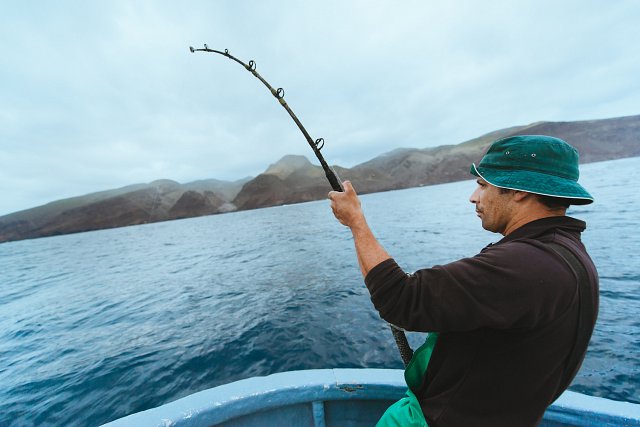
ST HELENA’S FISHERIES BILL 2021
During the formal Legislative Council meeting last Friday, 30 July, 2021, The new Fisheries Bill was discussed and passed by Council. This new Fisheries Bill, 2021, replaces the St Helena Fishery Limits Ordinance of 1977.
We’re incredibly happy and proud that St Helena’s updated Fisheries Bill has now been adopted! This new legislation will ban the use of destructive tuna fishing gears throughout St Helena’s Exclusive Economic Zone (EEZ), making it one of the world’s first exclusively one-by-one tuna fishing zones. This sets an important example for other countries to follow when managing their resources for the maximum sustainable benefit of their own communities. Not only will this help to ensure the long-term protection of the island’s valuable tuna resources, and the fishers that critically rely upon them, but it could also open up new market opportunities that will help meet the growing demand among ethical consumers for environmentally sustainable and socially responsible seafood.
At the start of the Blue Belt Programme on St Helena, during the setting of fisheries management priorities, reform of St Helena’s fisheries law in a number of areas was identified as necessary to improve the regulation of fishing and related activities within St Helena’s waters.
The health of our oceans is becoming an increasing concern, and people are more aware of their impact and ecological footprint than ever before. The Fisheries Bill, 2021, is informed by St Helena’s fisheries management and fishing licensing policy and provides a framework for modern regulation of fishing and related activities within St Helena’s fisheries limits. The Bill supports and promotes St Helena’s responsible management of its valuable marine resources to preserve these for future generations.
St Helena has a long tradition of sustainable fishing using ‘one-by-one methods’ – the only tuna fishing methods that are internationally considered to be environmentally responsible, truly sustainable, and based on generations of tradition. Portfolio Director for Environment, Natural Resources & Planning, Darren Duncan said: I am extremely pleased we have been able to present a Bill that assists us to better regulate St Helena’s fisheries as part of delivering an improved regulatory framework for our Marine Protected Area. It underpins new policy we have sought to embed as part of reforms for fisheries management, licensing and fishing activities and provides the necessary enforcement powers to protect our fishery resources to manage their long-term sustainability for the benefit of all users and interest groups both now and in the future. Thanks are extended to all who have played a part in the Bill reaching this stage of the legislative process and enabled dedicated resources to this particular legislative workstream.
In 2016, St Helena Government, the then St Helena Fisheries Corporation and local fishers partnered with the International Pole and Line Foundation (IPNLF) to establish a one-by-one only tuna fishing zone out to 200nm, shielding a vast ocean area from harmful fishing activities and providing valuable protection for our low-impact and socially responsible fishery. This partnership has been working to ensure that policies are adopted and implemented to ban all excessively destructive tuna fishing gears while also strengthening monitoring, control and enforcement activities to prevent illegal fishing. The project has also supported the implementation of best-practices for the handling and traceability of fish catch, improvements to fish catch quality and value, the development of a national fisheries Observer program, improved processing and marketing of fishery products and strengthening data recording systems. These actions will not only support future market opportunities supplying responsibly harvested St Helena tuna to high value markets, it will also help meet consumers’ growing demand for transparency and their desire to only purchase ethically and responsibly sourced seafood. By responsibly managing our fisheries, broader ecosystems will also be protected from the habitat damage, bycatch impacts, ghost fishing and pollution caused by other tuna fisheries.
The Fisheries Bill, 2021 is a key result of this project which reflects the intent and aspirations of a range of fisheries stakeholders who support responsible fishing and tourism as they pursue long term benefits for St Helena.
At this exciting time, huge thanks go to St Helena’s fishers, our many local partners and the St Helena government for recognizing the incredible opportunity the Fisheries Bill, 2021, represents for your nation and it’s marine resources.